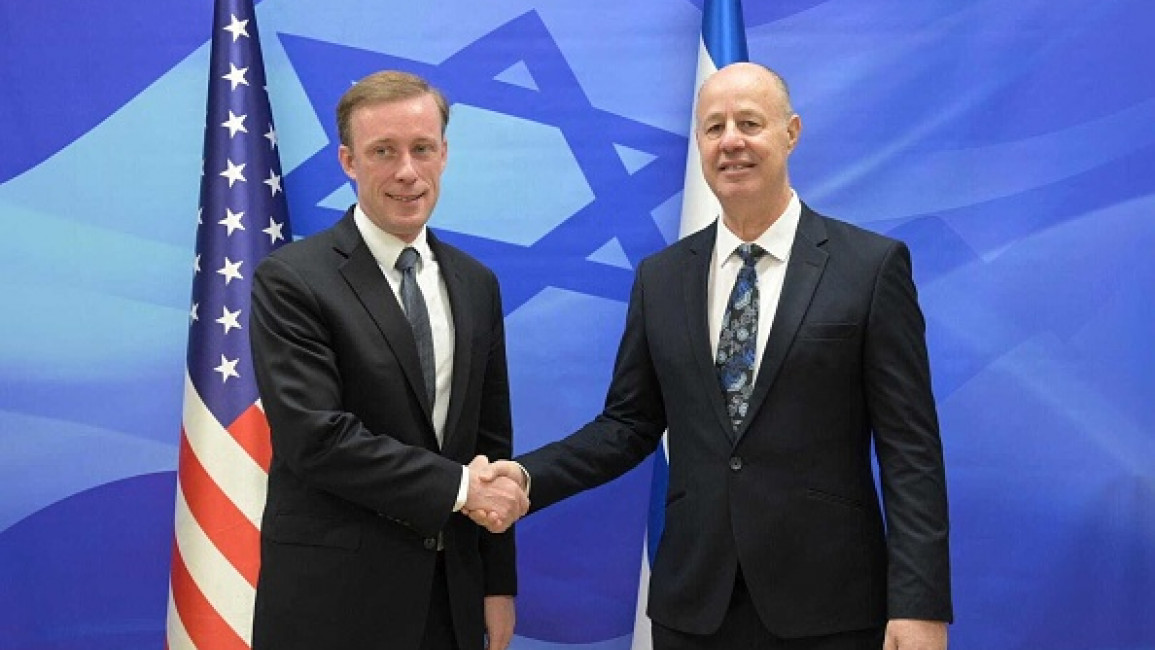US-Israel relations strained over Iran nuclear talks, settler violence against Palestinians
Leaks regarding US-Iran nuclear talks and increased illegal Israeli settlement expansion and settler violence against Palestinian civilians are causing a strain in relations between the United States and Israel.
White House national security adviser Jake Sullivan, in a recent call with his Israeli counterpart Tazhi Hangebi, expressed concern over leaks about indirect talks between the US and Iran, Axios reported.
Tzachi Hanegbi and Ron Dermer, Israel's minister for strategic affairs, met Sullivan at the White House in early June to discuss the indirect nuclear talks between Washington and Tehran.
The Iranian Foreign Ministry spokesperson Nasser Kanaani confirmed that Iran and the US held indirect talks last month in Oman.
Kanaani said in a briefing with reporters that Iran had exchanged messages with the US regarding lifting sanctions.
The indirect talks between the Biden administration and Iran aimed to restrict the Iranian nuclear program from moving forward, Iran's behaviour in the region and its involvement in the war in Ukraine, which is a point of concern to Israel as well.
Israel has expressed deep concern over Iran's supply of war drones to Russia.
Israeli PM Benjamin Netanyahu, in a recent interview with the Wall Street Journal, described the "partnership" between Moscow and Tehran as "disturbing".
"It gives Iran the weapons or the means to advance its goals against Israel and other states", the Israeli PM said.
Netanyahu is opposed to a new deal between the US and Iran, and the leaks to the Israeli press appear to be a way for him to indirectly increase pressure on the Biden administration through pro-Israel Republicans in Congress.
During the JCPOA, the Obama WH generously shared detailed info about the negotiations with Israel to demonstrate their appreciation of Israeli concerns.
— Trita Parsi (@tparsi) June 28, 2023
That stopped however when US intelligence picked up that Israel was strategically leaking the info to sabotage the talks... https://t.co/pePTHZG5T1
The informal understandings are said to include assurances from Iran to forgo uranium enrichment beyond 60 per cent, possibly stop or slow down the stockpiling of enriched uranium at that level, halt attacks by allied militias in Iraq and Syria on US troops and contractors, a halt from providing Russia with ballistic missiles and expand collaboration with the International Atomic Energy Agency (IAEA).
In exchange, Washington would abstain from imposing stricter sanctions on Iran, cease the seizure of oil tankers laden with Iranian oil, and halt its efforts to prompt the IAEA or the UN Security Council to implement punitive measures against Tehran.
In terms of the question of Russia, the United States has closely monitored the widening military ties between Russia and Iran. Earlier in the month, the White House stated that Russia appeared to be deepening its defence cooperation with Iran and had received hundreds of one-way attack drones that it uses to strike Ukraine.
Support between Iran and Russia was flowing both ways, US officials said, with Iran seeking billions of dollars worth of military equipment from Russia, including helicopters and radars.



